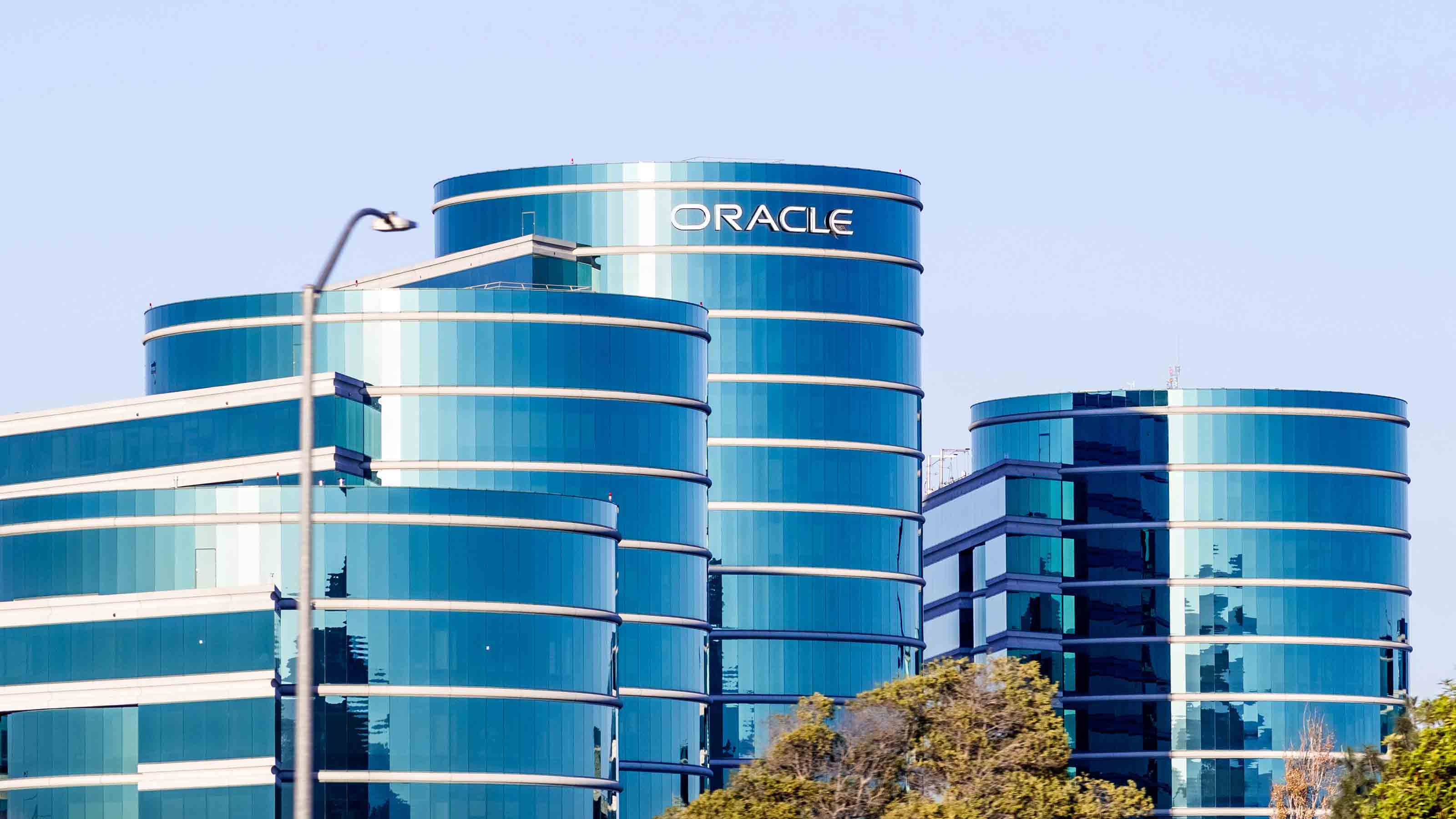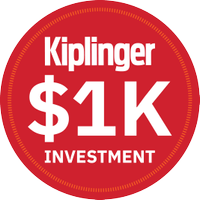Financial Super Bowl: Indianapolis vs. Chicago
If the Super Bowl were played on the financial pages, how would Chicago and Indianapolis fare? Let's face off both cities' corporate titans.

Seattle versus Pittsburgh, last year's Super Bowl, appeared to be a business-page mismatch. Seattle, cradle of Microsoft, Nordstrom and Starbucks, drips with glitz and growth. Pittsburgh, by contrast, has shrunk in population and lost headquarters for more great companies than it's kept, although it still retains a revived U.S. Steel and aluminum powerhouse Alcoa. Football is played in the dust and the trenches, so it's fitting that the ingots rolled over the lattes last year.
Except for size and lake frontage, this year's opponents, Indianapolis and Chicago, are more alike than different. Both are economically diverse, with lots of businesses involved in health care, finance, real estate development and transportation. Indiana was once a farm and heavy-industry state, but Indianapolis's most successful company, Simon Property Group, is America's largest shopping-mall operator, a real estate investment trust that's worth more on the stock market than the next three mall developers combined. Indy's fortunes also hinge on the powerful health-care team of Eli Lilly and WellPoint.
Chicago's railroad and stockyard heritage is colorful, but its corporate roster now leads off with Boeing, which left Seattle to set up headquarters in the Windy City. Other big corporations based in the Chicago area are Walgreens, Motorola, Allstate, Abbott Labs and McDonald's. Chicago business is a microcosm of real life. You eat, you shop, watch your health, use your cell phone and computer, and buy insurance. When you get fed up or winter gets too icy, you escape on a 767.
From just $107.88 $24.99 for Kiplinger Personal Finance
Become a smarter, better informed investor. Subscribe from just $107.88 $24.99, plus get up to 4 Special Issues

Sign up for Kiplinger’s Free Newsletters
Profit and prosper with the best of expert advice on investing, taxes, retirement, personal finance and more - straight to your e-mail.
Profit and prosper with the best of expert advice - straight to your e-mail.
If the Colts and Bears were named for their states, as the Vikings and Titans are, this corporate Super Bowl would be more intense. Consider that some of the best investments in Indiana and Illinois have been the likes of Caterpillar, in Peoria, Ill., and Steel Dynamics, in Fort Wayne, Ind. But for the purposes of this contest, we count companies based only in Chicago and Indianapolis and their suburbs. Here's how we see the head-to-head matchups.
We start with defense...
HEALTH CARE: Lilly (Ind.) vs. Abbott (Chi.) Eli Lilly (symbol LLY) is more profitable, has a slew of products in the pipeline, and its stock sports a higher yield. Its recent legal problems with Zyprexa are worrisome, but that just comes with the turf with big drug companies. Abbott (ABT), though, scores points with its recent acquisition of Kos Pharmaceuticals. It's also more diversified than Lilly because it makes medical devices and other non-drug products. Advantage: Abbott
INSURANCE: WellPoint (Ind.) vs. Allstate (Chi.)WellPoint (WLP) is a giant nationwide health insurer, while Allstate (ALL) protects cars and homes. As such, this may be a bit like comparing a linebacker with a defensive lineman. But both have been strong investments, with double-digit long-term compounded returns and other positive attributes. Health insurance is generally more stable than property-casualty, but because casualty insurance results tend to be erratic, the market gives Allstate a markedly lower price-earnings ratio. Its shares appear to be a bargain, and they pay a nice dividend, too. I like both of these stalwarts and so rate this match-up a tossup.
Now, let's go to the offense...
RETAILING: Simon Property Group (Ind.) vs. Walgreen (Chi.)Simon (SPG) is fabulous, a real estate investment trust whose performance and reach are special even by REIT standards. The worst thing you can say about Simon is its stock price is so high that the yield is only 3%. But it's a Hall of Famer for sure. Walgreen (WAG) fancies locating stores on every lot between New York and California, Chicago and Florida. I swear I saw 17 Walgreen stores while touring around Raleigh, N.C., for four hours. We're all getting older and sicker, but we're trying stay in better shape. And many of us are getting our meds online. Simon is unique and Walgreen is just large. Advantage: Simon
MANUFACTURING: Lack of players.If Chicago could claim Caterpillar and John Deere, it would get the nod by acclimation. Boeing (BA) and Motorola (MOT) aren't bad, and Illinois Tool Works (ITW), a maker of fasteners, auto parts, and engineering tools, is a workhorse that fits well on any squad. Unfortunately for Indianapolis, its finance and service-based economy lacks the balance it would get from any major home-grown manufacturer. This isn't either side's strongest position but the advantage goes to the home of Boeing and ITW.
DINING:McDonald's (Chi.) vs. Steak & Shake (Ind.)This is the fight between fast food and quick-service food, the Big Mac against the bulkier sit-down "steakburger." Five years ago, McDonald's (MCD) appeared over the hill. Its finances and sales momentum were in decline. It was an easy call to sell the stock. But since 2003, McDonald's has enjoyed three stellar years out of four and has been a major player in the resurgence of the Dow Jones industrial average. The much smaller Steak & Shake (SNS) is expanding south and east from its roots, but, despite good products, its stock doesn't thrill investors. McDonald's profit margin is going up, while S&S's stays sideways. In a food fight, Steak & Shake wins, but this is financial and the advantage goes to McDonald's.
Lastly, special teams...
These are the unsung squads that often can mean the difference between victory and defeat. Special teams give less-heralded players an opportunity to work into the spotlight.
For Chicago, watch Stericycle (SRCL), which disposes of medical waste and has compiled a marvelous ten-year growth record. Analysts expect still more to come. Indy lacks depth in publicly traded, high-growth companies. But that could be changing. Amazon founder Jeff Bezos has personally bankrolled ChaCha, a "human brain powered" search engine started by Indianapolis entrepreneur and investor Scott Jones. Jones is a one-man business incubator who has been involved with dozens of companies. If ChaCha someday goes public, it could be a big winner. But for now, the edge is by Lake Michigan.
The final score...
Indianapolis is hardly a business backwater, and it doesn't deserve those uncomplimentary nicknames like India-no-place. But Chicago remains a business powerhouse. It may have some weak spots in its lineup, but it has enough power and depth to prevail. Bears 27, Colts 16.
Profit and prosper with the best of Kiplinger's advice on investing, taxes, retirement, personal finance and much more. Delivered daily. Enter your email in the box and click Sign Me Up.

Kosnett is the editor of Kiplinger Investing for Income and writes the "Cash in Hand" column for Kiplinger Personal Finance. He is an income-investing expert who covers bonds, real estate investment trusts, oil and gas income deals, dividend stocks and anything else that pays interest and dividends. He joined Kiplinger in 1981 after six years in newspapers, including the Baltimore Sun. He is a 1976 journalism graduate from the Medill School at Northwestern University and completed an executive program at the Carnegie-Mellon University business school in 1978.
-
 Turning 65 in 2026? Here Is Exactly How to Sign Up for Medicare
Turning 65 in 2026? Here Is Exactly How to Sign Up for MedicareWhether you’re months away from your 65th birthday or plan to work past retirement age, here are the steps to secure your Medicare coverage and avoid costly mistakes.
-
 A Free Tax Filing Option Has Disappeared for 2026: Here's What That Means for You
A Free Tax Filing Option Has Disappeared for 2026: Here's What That Means for YouTax Filing Tax season officially opens on January 26. But you'll have one less way to submit your tax return for free. Here's what you need to know.
-
 Georgia Income Tax Elimination: What the 2026 Tax Cuts Mean for You
Georgia Income Tax Elimination: What the 2026 Tax Cuts Mean for YouState Tax Georgia lawmakers aim to axe the state income tax by 2032. We break down the $16 billion fiscal shift, the fate of the state surplus, and which tax breaks are on the chopping block.
-
 If You'd Put $1,000 Into Lowe's Stock 20 Years Ago, Here's What You'd Have Today
If You'd Put $1,000 Into Lowe's Stock 20 Years Ago, Here's What You'd Have TodayLowe's stock has delivered disappointing returns recently, but it's been a great holding for truly patient investors.
-
 If You'd Put $1,000 Into 3M Stock 20 Years Ago, Here's What You'd Have Today
If You'd Put $1,000 Into 3M Stock 20 Years Ago, Here's What You'd Have TodayMMM stock has been a pit of despair for truly long-term shareholders.
-
 If You'd Put $1,000 Into Coca-Cola Stock 20 Years Ago, Here's What You'd Have Today
If You'd Put $1,000 Into Coca-Cola Stock 20 Years Ago, Here's What You'd Have TodayEven with its reliable dividend growth and generous stock buybacks, Coca-Cola has underperformed the broad market in the long term.
-
 If You Put $1,000 into Qualcomm Stock 20 Years Ago, Here's What You Would Have Today
If You Put $1,000 into Qualcomm Stock 20 Years Ago, Here's What You Would Have TodayQualcomm stock has been a big disappointment for truly long-term investors.
-
 If You'd Put $1,000 Into Home Depot Stock 20 Years Ago, Here's What You'd Have Today
If You'd Put $1,000 Into Home Depot Stock 20 Years Ago, Here's What You'd Have TodayHome Depot stock has been a buy-and-hold banger for truly long-term investors.
-
 What the Rich Know About Investing That You Don't
What the Rich Know About Investing That You Don'tPeople like Warren Buffett become people like Warren Buffett by following basic rules and being disciplined. Here's how to accumulate real wealth.
-
 If You'd Put $1,000 Into Bank of America Stock 20 Years Ago, Here's What You'd Have Today
If You'd Put $1,000 Into Bank of America Stock 20 Years Ago, Here's What You'd Have TodayBank of America stock has been a massive buy-and-hold bust.
-

 If You'd Put $1,000 Into Oracle Stock 20 Years Ago, Here's What You'd Have Today
If You'd Put $1,000 Into Oracle Stock 20 Years Ago, Here's What You'd Have TodayORCL Oracle stock has been an outstanding buy-and-hold bet for decades.